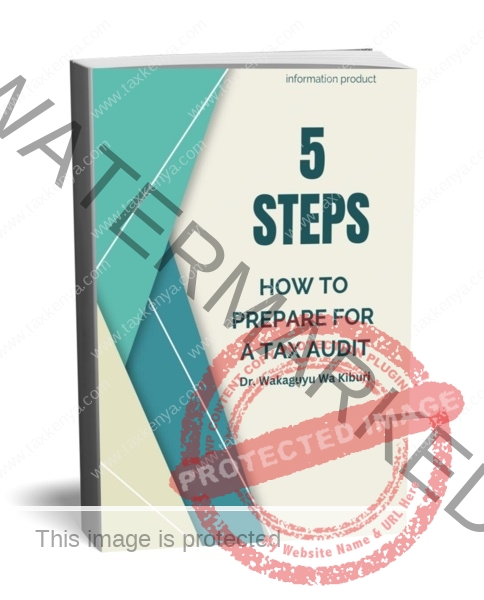The question of the number of voters and taxpayers is a question about is about political power and national obligation. Voting is about political power while tax is about national obligation. According to recent data from the Independent Electoral and Boundaries Commission (IEBC), more than 19 million Kenyans registered to vote during the Kenya national elections on 8th August 2017. Every single voter is over 18 years of age and has a national identification card (ID).
The question we pose in this article is SHOULD THOSE WHO SEEK TO EXERCISE POLITICAL POWER FAIL NATIONAL OBLIGATION?
A Voter and a Taxpayer
In Kenya, anyone over 18 years is considered an adult and is allowed to behave as such. Some of the activities that an adult Kenyan can be involved in are:
- Register for tax by acquiring a personal identification number (PIN) from KRA;
- Open a bank account;
- Be legally employed;
- Set up and operate a business;
- Buy and own properties;
- Invest in securities at the Nairobi Securities Exchange (NSE);
- Buy government bonds and receive dividends;
- Be prosecuted and jailed;
- Have a family (marry, bear children etc.).
The over 19 million Kenyan voters have been actively involved in basically all the above activities apart from one activity which is registering as taxpayers. However, we are aware that not all persons are supposed to register for tax – there are a few exemptions such as the very elderly.
Two Questions
If every Kenyan over 18 years old is expected to register as a voter and register as a taxpayer, by June 30th 2017, approximately 19 million Kenyans should have filed annual tax returns for the year of income 2016. However, only about 2 million individual taxpayers (and voters) filed tax returns
Therefore, for argument’s sake, if we assume that about 500,000 persons did not file annual tax returns for one reason or another, then the total number of individual taxpayers is approximately 2.5 million in Kenya. The 2.5 million taxpayers are against 19 million registered voters.
The total number of individual taxpayers should be more than 19 million. This variance begs answers to two critical questions (among the many:
- Why is there such a variance between the number of registered taxpayers and registered voters?
- From a taxation perspective, what is the implication of the variance?
Let us attempt to answer the two questions:
a) Difference between Registered Taxpayers and Registered Voters
2.5 million registered taxpayers out of 19 million registered voters translates to 13.2 per cent. This means that less than 15 % of the registered voters in Kenya pay income tax.
Approximately 85 % of the registered voters in Kenya do not pay income tax. Taxation is about the economy while voting is about politics. Hence, Kenyans are more interested in politics than the economy.
There are several reasons why more than 85 % of the registered voters are not registered for tax:
- They do not know they are supposed to register;
- They do not know how to register;
- They have refused to register;
- Someone has told them not to register.
It is KRA’s responsibility to explore ways to bring on board all the tax-unregistered voters into the tax system. The available data for the 8th of August 2017 presents the best opportunity for KRA to net the elusive potential taxpayers.
b) Tax Implications of the Variance Between the Number of Registered Taxpayers and Voters
Kenyans participate in national elections so that they can elect political leaders to lead them and make political and economic decisions. Often, the political and economic decisions require money and a lot of money.
The money is from government revenues of which a high proportion is tax money whether at the county government level or the national government level.
However, only a small percentage of the registered voters pay tax in Kenya. The upshot of this is that the majority of voters elect people to make decisions for money that they do not contribute.
The message by the 85 % of voters who are not registered for the tax to the 15 % of voters who are registered for tax in Kenya is “You pay taxes, we will elect for you people to make decisions about the taxes that you pay”.
Are the 85% Registered Voters Supposed to Pay Tax?
Yes, the majority of the registered taxpayers are supposed to pay income tax. The persons may claim that they do not know they are supposed to register for tax because the income they earn is not taxable.
However, Income Tax Act Cap 470, Section 3(1) explains that “income tax will be charged on all income of a person whether resident or non-resident which accrued in or was derived from Kenya” in any year of income.
The question is whether the 85 % of voters who are not registered taxpayers accrue or derive any income from Kenya. The answer is a resounding YES.
Business Persons
For the persons in business, we are aware that according to Turnover Tax (TOT) rules, anyone with an annual business turnover of less than Kshs 500,000 should not pay tax. Kshs 500,000 translates to Kshs 41,666.70 per month (Kshs 1,384 per day).
With the current high prices in the economy, for illustration purposes, this would translate to approximately 232 (every 2 kgs) packets of Unga (kshs 180 per packet x 232 = kshs 41,760). Hence, there are many business people in Kenya operating in the informal sector who should be registered for tax.
Employed Persons
How about employment income? All employees in formal employment pay income tax for all types of compensation per month. However, it is common knowledge that persons employed in the informal sector do not pay income tax.
For example, how many domestic workers, casual labourers and other temporary workers pay income tax? There are many persons in informal employment whose compensation is way above the taxable threshold in Kenya.
In the construction industry for 26 days in Nairobi, the earnings are approximately as follows
Per day Kshs) Per Month (Kshs)
Mason 700 – 1,000 18,200 – 26,000
Supervisor 1,500 – 2,000 39,000 – 52,000
Therefore, there are persons in the informal sector employees who earn far more than people in formal employment yet they do not pay tax.
In the case of domestic workers, though the salaries are low there are other forms of compensation which can be monetized. Some of the compensations for domestic workers are food, lodging, transport, clothing, electricity, water, contributions for death, birth etc.
When total compensations for domestic workers are considered, the majority earn more than the taxable threshold and they should be paying income tax which they do not.
The large percentage of Kenyans who do not pay taxes should be made aware that they should not expect representation without paying taxes. KRA’s slogan is “Kulipa Ushuru ni Kujitegemea!” If only the 19 million Kenyans paid taxes (whatever amount), what would happen to this country?
If 19 Million Kenyans Paid Income Tax
If all the registered voters were registered taxpayers, several things would happen. The following are some of those things.
- There would be more than 19 million individual taxpayers in Kenya.
- Tax collection in Kenya would increase approximately 7 times. For example in the year 2015/2016, Kenya collected Kshs 1.210 trillion. With the increased number of taxpayers, tax collection would increase substantially.
- With the probable increase in tax collection, the tax rates would hopefully substantially come down.
- More Kenyans would have a voice in seeking accountability for tax revenues from the government.
- The country would be able to pay off most of the internal and external debts and emerge as one of the countries in the world with low debts.
- The government would have enough money for development projects such as the SGR. Probably the SGR would be spread all over Kenya.
With a large number of taxpayers, Kenya would be one of the best countries in the world.
Should the National ID be Linked to the PIN?
In Kenya, the rule is that one cannot get a PIN without an ID. However, the two documents are acquired at different times. Since the two documents are required for most transactions, it would be prudent that the two documents be issued at the same time. Therefore, KRA and the Department of Registration of Persons should work together to ensure that all new ID applicants have PIN henceforth.
Should Voting be Linked to Tax Payment?
We know that elections are about political power and voting is a democratic right. However, paying taxes is a national obligation. Since the huge interest in political power in Kenya is about control of economic resources (tax is the largest component of economic resources), we suggest that voting should be linked to tax registration and tax payments.
Therefore, KRA should immediately compulsorily register all the voters who are not registered for tax. The number of registered taxpayers will go up to more than 19 million. In 2022, if any voter will not have paid any amount of tax between 2017 and 2022, they should be struck from the voter’s register.
This move will bring on board all Kenyans who “accrue and derive income” from Kenya. People should not be allowed to vote for politicians to go and make decisions about revenue contributed by other people.
Political interests and representation should be linked to tax registration and contribution. This will end economic enslavement where some Kenyans pay taxes without representation for the government to provide free education, medical care etc.
Let’s debate this very important issue.
Feel free to send us questions or topics on tax and investments in Kenya that you would wish to be covered in this Website.
Thank you for reading the article.
Dr. Wakaguyu Wa Kiburi




